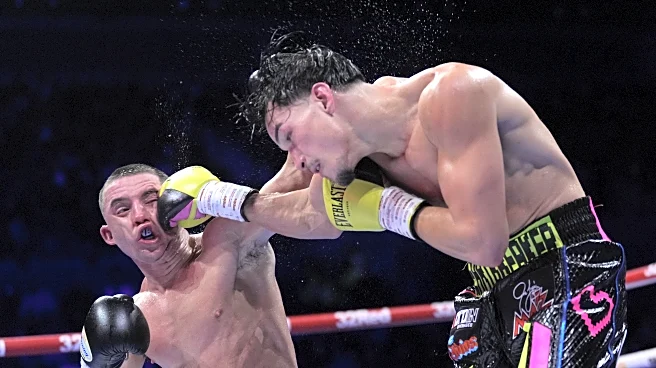What is the story about?
What's Happening?
Spinal Tap II: The End Continues, directed by Rob Reiner, revisits the fictional rock band Spinal Tap, originally introduced in the 1984 mockumentary This Is Spinal Tap. The sequel follows the band as they reunite for a final concert in New Orleans, a contractual obligation inherited by their late manager's daughter. The film explores the band's evolution from a parody of rock culture to an ironically iconic status, highlighting their enduring popularity despite the decline of classic rock's mainstream dominance. The narrative focuses on the band's reunion, with Nigel Tufnel, David St. Hubbins, and Derek Smalls attempting to move on from their rock-star lives, only to be drawn back together for the concert.
Why It's Important?
The sequel's release underscores the lasting impact of Spinal Tap on rock culture and its ability to satirize the music industry's evolution. By portraying the band as beloved and admired, the film reflects on the nostalgia surrounding classic rock and its transformation over decades. This cultural commentary is significant as it highlights the shift in music consumption, where viral trends and digital platforms now dominate. The film's approach to satire, focusing less on direct parody and more on character-driven humor, offers insights into the changing landscape of rock music and its place in contemporary culture.
What's Next?
The film's reception may influence future projects that explore the intersection of nostalgia and satire in music. As audiences engage with Spinal Tap II, discussions around the authenticity and commercialization of rock music could emerge, potentially impacting how classic rock is perceived and marketed. The film may also inspire similar projects that blend humor with cultural critique, exploring the legacy of other iconic music acts.
Beyond the Headlines
Spinal Tap II's portrayal of the band as rock royalty raises questions about the commodification of nostalgia and its impact on cultural memory. The film's shift from parody to reverence suggests a broader trend in entertainment, where past icons are celebrated rather than critiqued. This approach may influence how future generations understand and engage with cultural history, emphasizing the importance of critical reflection in preserving artistic integrity.
















